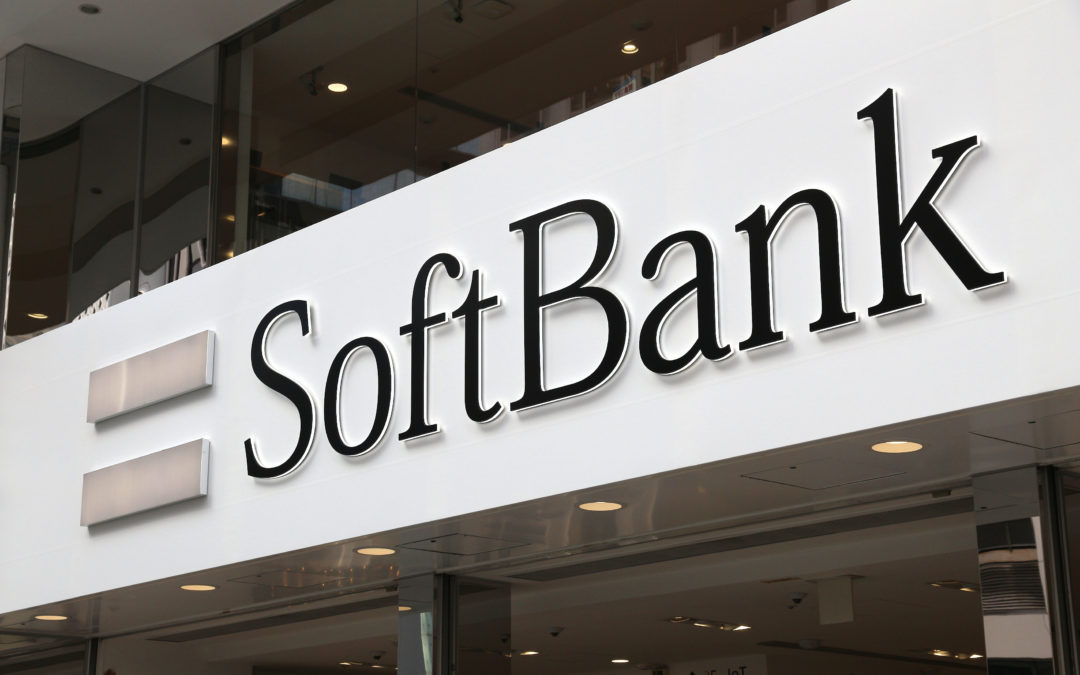
by Laghe Andrews | Jan 12, 2024 | Business News, Latest |
Image credit: Tupungato / Shutterstock.com
In a recent move, SoftBank sold its Open Opportunity Fund to its chairman and managing partner, Paul Judge, and Marcelo Claure, who is to be appointed the fund’s vice-chairman and general partner. This groundbreaking shift is seen as a substantial milestone, demonstrating a concrete move towards more inclusive representation within all layers of the venture capital ecosystem.
The Open Opportunity Fund: A Brief History
Earlier this year, SoftBank rebranded its Opportunity Growth Fund, bringing it under the new name of Open Opportunity Fund (OOF). Paul Judge, who was then appointed as chairman, also became a co-owner of the fund. Marcelo Claure, the initial launcher of OOF, had served as SoftBank’s COO up until 2022 and is making a return to work with the fund after a year-long hiatus.
“Marcelo brings a wealth of experience and a vast network that can help our portfolio companies. Marcelo’s extensive network of Latino entrepreneurs significantly enriches our deal flow within this vibrant community,” Judge said.
Significant Contributions
Fund 1, which is now owned by Judge and Claure, deployed $100 million in 75 Black and Latino companies, yielding seven exits and 46 follow-on rounds. SoftBank will continue to be an LP in Fund 2, and according to Claure, the fund is on the lookout for investors seeking to drive more diversity in the tech ecosystem, and who “value the importance of supporting underrepresented entrepreneurs.”
The Future of the Funds
Fund 2, which was launched earlier this year, will also increase its target to $200 million. This fund will invest in 50 pre-seed to growth-stage companies in fintech, health tech, edtech, sales and marketing, and enterprise IT. It should be noted that companies from Fund 1 may also receive funding from Fund 2 on a case-by-case basis, as stated by Judge.
Why Diversity Matters
“We believe the Black and Latino founder market is an untapped source of outsized returns and this focus allows us to find alpha that other VCs have overlooked,” Judge said. “The strong performance of Fund I proves that thesis works.”
This move is not just a significant milestone for SoftBank, but also a giant leap for the venture capital ecosystem. With more diverse representation in the higher echelons of venture capital firms now, the future of the tech ecosystem looks promising indeed, with greater support for underrepresented entrepreneurs.
The world of venture capital can often be complex and difficult to navigate, particularly for underrepresented entrepreneurs. However, with moves such as these from giants like SoftBank, the future of entrepreneurship and innovation looks bright indeed.

by Jonathan P-Wright | Feb 2, 2024 | Business News, Latest |
Photo by Giorgio Trovato on Unsplash
Despite recent fluctuations in economic indicators such as inflation, a robust current of capital continues to course through the veins of Silicon Valley. In a notable example, Top Tier Capital – a San Francisco-based VC and private equity firm – has recently announced an impressive $1.05 billion boost to its investment fund, aimed at global venture funds and tech companies.
A Reinvigorated Investment Strategy
In a conversation with TechCrunch, Top Tier Capital’s managing partner, David York, explained the strategy underlying the new capital influx. This round of funding, which includes Top Tier’s Fund X, single-investor funds, and separate accounts, is set to emphasize investments in Europe, the Middle East, and Asia.
“We have enormous confidence in the continued growth of technology globally, as well as our future investment activities,” York shared in a statement.
Building Stronger Ventures in Uncertain Markets
According to York, the strongest companies are often built in uncertain markets. Despite the current global economic fluctuations, the digital economy has continued to grow as part of global GDP overall. This presents a unique opportunity for Top Tier to fortify its position as one of the more vigorous venture franchises in the business.
“We see an opportunity here to build our firm for the future, as we remain focused on trying to invest as one of the stronger venture franchises in the business,” York stated.
A Look at Top Tier’s Journey
Founded in 2011 by Philip Paul, who spun the company out of Paul Capital, Top Tier Capital primarily invests in VC funds but also in startups alongside select managers. Its portfolio includes around 400 fund interests, including big names like Andreessen Horowitz, Mayfield Ventures, and Creandum. The firm has exposure to over 16,000 venture-backed companies spanning sectors like biotechnology, software-as-a-service software, web3, and AI.
Since its founding, Top Tier has raised approximately $3.7 billion in capital from investors across 12 funds and has more than $8 billion in assets under management. The firm’s exits include corporate performance management platform Anaplan, cybersecurity upstart Carbon Black, and cloud app management company Engine Yard.
Recent Startup Bets
Top Tier has recently placed bets on startups such as Plus One, a company building parcel robotics vision systems; Paro, a marketplace matching freelance financial experts with firms; and Humane, the company behind the AI-powered wearable, the Ai Pin.
New Additions to the Top Tier Team
As part of this new development, Top Tier has announced the addition of Jonathan Biggs, a former SVB Capital managing partner based in London, to its team as an investment partner. Simultaneously, Michelle Ashworth has been promoted to a partner role alongside Biggs.
Jessica Archibald, Top Tier’s managing director, expressed her enthusiasm for the future, stating, “We believe the companies powering our future are being built today, and we think our firm’s deep industry expertise and longstanding relationships make us a uniquely valuable investing partner.”
Wrapping Up
Top Tier Capital’s recent $1.05 billion funding is a testament to the resilience and potential of the global tech industry. With its new capital and strategic emphasis on Europe, the Middle East, and Asia, Top Tier is poised to strengthen its position as a powerful force in the global venture capital landscape.
As the world of startups continues to evolve and innovate, investors like Top Tier Capital will undoubtedly continue to play a crucial role in shaping the future of technology worldwide.

by Laghe Andrews | Nov 6, 2023 | Latest, Music News |
Recently the world of music and real estate collided in an unexpected way, with the spotlight falling on DJ Envy, a renowned radio host, and his former business associate, Cesar Pina. The duo are plunged into a scandalous vortex of accusations related to an alleged real estate scam.
A Prelude to the Scandal
DJ Envy, celebrated co-host of The Breakfast Club, found himself embroiled in a controversy that has rocked his reputation. The DJ, whose real name is Raashaun Casey, is facing accusations of using his fame to attract individuals into a purported real estate scam masterminded by his ex-business partner, Cesar Pina. While Envy hasn’t been officially charged with any wrongdoings, Pina is currently facing federal wire fraud charges.
The Accusations Against Cesar Pina
Pina, a real estate entrepreneur, allegedly duped numerous individuals by running a Ponzi scheme. The Department of Justice press release alleges that Pina manipulated individuals into providing him with millions of dollars to invest in residential properties. Instead of sharing the profits, he is believed to have defrauded his contributors.
“We allege Pina offered a ridiculously high rate of return to investors, then took the millions he got and invested it in himself,” said James E. Dennehy, FBI-Newark Special Agent in Charge.
Pina could face a maximum of 20 years in prison if found guilty of wire fraud.
DJ Envy’s Implication in the Scandal
DJ Envy’s association with Pina started in 2017 when he intended to deepen his understanding of real estate. The pair teamed up and started operating a company that conducted real estate seminars and taught people about the business, simultaneously recruiting them to invest in properties.
DJ Envy’s involvement in Pina’s business ventures has led to his name being included in at least 20 civil cases filed against Pina. However, he has adamantly denied any knowledge of Pina’s alleged illicit activities, asserting his primary aim was to uplift his community by teaching them about real estate.
Understanding Ponzi Schemes
A Ponzi or pyramid scheme is a fraudulent investment strategy where existing investors are paid using funds collected from new investors. The organizers of such schemes often promise high returns with minimal risk. However, they mostly pocket the money, leaving the investors at a loss. The most notorious Ponzi scheme was orchestrated by financier Bernie Madoff, who swindled over $64.8 billion from investors.
Public Reaction on Social Media
The situation involving DJ Envy and Cesar Pina has caused quite a stir on social media. Many users have been sharing old videos of DJ Envy discussing his work with Pina. Some have even resorted to trolling the radio host.
DJ Envy and Cesar Pina’s Response to the Allegations
DJ Envy addressed the allegations on his radio show The Breakfast Club, expressing his surprise about the charges against Pina. He emphasized his commitment to helping his community learn about real estate and denied any knowledge of Pina’s supposed fraudulent activities.
Meanwhile, Pina, on his Instagram Live, denied all allegations but admitted that Envy was not part of the “transactions” that have resulted in the fraud lawsuits.
While the truth remains to unfold, this scandal has undoubtedly cast a shadow over DJ Envy’s reputation. The DJ, who has been a beacon of positivity during his 30-year career, is now caught in a whirlwind of legal and public scrutiny.
This incident serves as a reminder of the importance of transparency and integrity in business dealings. It also underscores the potential dangers of celebrity endorsement, where the line between genuine recommendation and manipulation can often blur.

by Pharron Fields | Sep 5, 2023 | Business News, Latest, Tech News |
Image Credit: Photo by Per Lööv on Unsplash
Teamshares: A Novel Approach to Business
First on our list is an intriguing venture by Teamshares. This startup has been attracting a substantial amount of capital and has embarked on an ambitious mission of acquiring numerous small and medium-sized businesses (SMBs). However, this is merely the tip of the iceberg. Teamshares also plans to offer its employees the opportunity to earn stock through prolonged service, while simultaneously providing centralized fintech services to all its subsidiary companies. This novel business model has ignited much discussion in the startup community.
MoonPay: Stepping into the Venture Game
Next, we turn our attention to MoonPay, a crypto payment infrastructure company that is venturing into the world of investments. MoonPay is setting its sights particularly on crypto, gaming, and fintech. The confluence of these three sectors invariably leads to crypto games. We are keenly observing MoonPay’s investment decisions, as new funds that are crypto-themed or crypto-adjacent are becoming increasingly scarce. Therefore, MoonPay’s entry into the market is indeed exciting news.
Rent Butter and Kiki: Revitalizing Renting
With the zero interest rate era drawing to a close and the experimental phase of building new iBuying and mortgage service startups partially concluded, renting is back in vogue. Consequently, startups that focus on rentals are also gaining traction. Two such startups are Rent Butter and Kiki, both of which are making waves in the rental market.
The Elusive Tech IPOs
The long-awaited tech IPOs have been more elusive than anticipated. Using data from Crunchbase, we have noted the extended wait for authentic tech IPOs. The good news, however, is that they are gradually making a comeback.
Lean Startup Ideology Meets AI
Lastly, we explore what happens when the lean startup ideology infiltrates the realm of Artificial Intelligence (AI). As it turns out, this combination leads to an abundance of experiments.
And with that, our roundup of this week’s most significant startup and tech news concludes. Please note that due to an American holiday, our next episode of Equity will be broadcasted on Tuesday instead of Monday. Until then, keep innovating and stay tuned!

by Jonathan P-Wright | Sep 27, 2022 | Business News, Latest |
During the past 24 years, a Voyager customer has lost $1 million in savings and is now one of many struggling to recoup the money.
Desperate times call for desperate measures, and that’s precisely what one Voyager customer is doing. After losing $1 million that he had saved over 24 years, he is now resorting to extreme methods in an attempt to get his money back.
She’s not alone either; many other customers have lost money due to the recent issues with the popular crypto trading platform. In this article, we’ll explore how the loss of funds has affected these people and what they’re doing to try and get their money back.
Who is Voyager, and what do they do?
Voyager is a digital currency trading platform that allows users to buy and sell cryptocurrencies. Voyager also offers a mobile app that lets users trade on the go.
Voyager was founded in 2018 by Oscar Salazar, a former hedge fund manager, and Philip Eisner, a software engineer. The company is based in New York City.
Voyager offers commission-free trading for U.S. customers and low fees for international customers. The company also has a referral program that gives users $25 in free Bitcoin for every friend they refer to the platform.
Voyager has been growing in popularity in recent years as more people invest in cryptocurrencies. However, the company has come under fire recently after some customers lost millions of dollars saved over years of trading on the platform.
What happened to the customer’s money?
The customer’s money was invested in several different Voyager products. These products were designed to give the customer a good return on their investment over time. However, the products failed to perform as expected, and the customer lost significant money.
The customer is now one of many who are desperate to recoup their losses. They have been contacting Voyager customer service for months but have so far been unable to get their money back.
It is unclear what will happen to the customer’s money. Voyager has not said anything publicly about the situation. However, it is clear that the customer is facing a challenging situation.
How are other customers affected?
Other customers are affected in a variety of ways. Many have lost a significant amount of money that they had saved over the years. Some are now desperate to recoup their losses. Others are angry and frustrated with the company. Some customers have even filed lawsuits against Voyager.
Many people now desperate to recoup funds.
The Voyager customer who lost $1,000,000 million saved over the years is just one of many now desperate to recoup their funds.
Since the company’s collapse, many people have been left in a difficult financial situation. Some have lost their entire life savings, while others have been left with debt they can’t repay.
Many people are now desperately trying to recoup their losses. They are contacting their banks and credit card companies, as well as the courts, in an attempt to get their money back.
However, it is not clear how much success people will have in recouping their losses. The process is likely to be long and complex, and there is no guarantee that people will get all of their money back.
What happened to the money?
The customer’s money was invested in a number of different ventures, all of which failed. As a result, the customer lost the entire amount that was saved over the years.
This is just one example of many similar cases. Many people are now desperate to recoup their losses from Voyager.
Many people investing with Voyager have their money stuck in limbo. This is why many investors are hesitant to invest their money.








RECENT COMMENTS